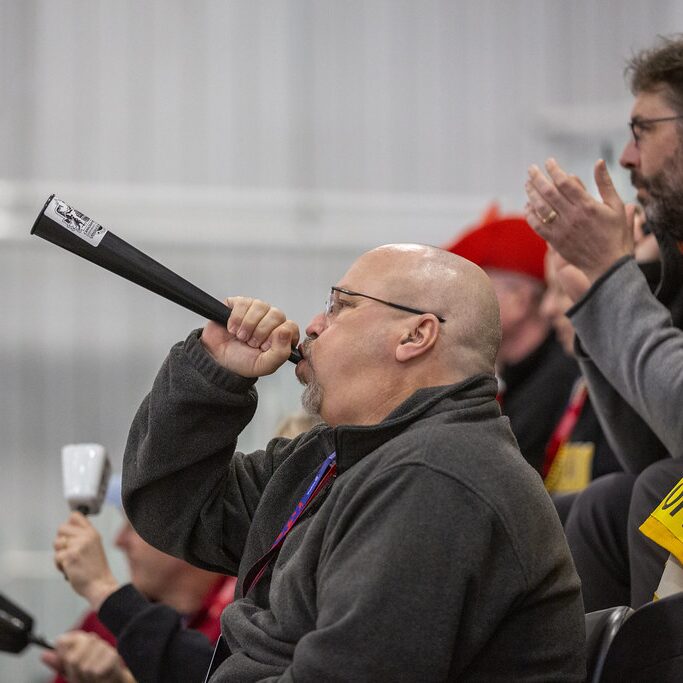Experiencing the game as a spectator


Highs, Lows, And Everything In Between

The beauty of watching sport is in the experience. The exciting rush of our team scoring a goal. The anxiety when the opposition is pressing against our net. The sympathetic "oooh" when someone slams into the boards.
The apoplectic rage when the referee makes a call?
A Ringette game is an emotional experience for everyone involved in the rink. Spectators are engaged in the game. You are a part of the team and put great emotional value on team objectives and winning. You are so invested in the outcome that you associate what's happening on the ice as if it's happening to you.
"They're calling a penalty on us?!"
Experiencing a game means feeling deep joy, excitement, pain, disappointment, and rage from the action on the ice. Individually, this is an amazing, addictive experience. When this experience is shared with a large group, it becomes fanatic. It is easy to lose self-awareness.
One emotion humans have difficulty holding back is rage at injustice. When watching a Ringette game, our heightened emotional state primes us to perceive injustice (real or imagined) in the decisions of the authority on the ice, the On-ice Official.
The rules of Ringette and the expectations of officials are nuanced, and few spectators completely understand them. Therefore, spectators must "feel out" the game and visualize what just decisions they think the On-ice Officials should make. When the actual calls differ from expectations, you can't help but express your displeasure. Nor can anyone else.

That's the environment that officials work in
Where coaches, players, and spectators who understand the fundamentals of Ringette but lack a complete understanding share their outrage when they:
- believe that one of the rules of the game is inaccurately or unfairly applied
- believe that a rule of the game itself is unfair, even if it were implemented accurately
- feels unfairly deprived due to factors outside of the rules of the game
Would you stay in a role where hundreds of people yelled at you day after day, regardless of whether you were doing a good job?
Is there a solution?
You, alone, are not the problem. We all are.
Individually, our outbursts would barely register. They might not even be heard on the ice. The problem is that we all do it together. We build each other up, and it becomes an insidious part of everyone's experience.
The first step is recognizing when we're feeling these frustrations and sharing them across the arena. When we recognize that we're part of the problem, we can try to change our behaviour and focus more on the fun of the game and the positives that we can take away.